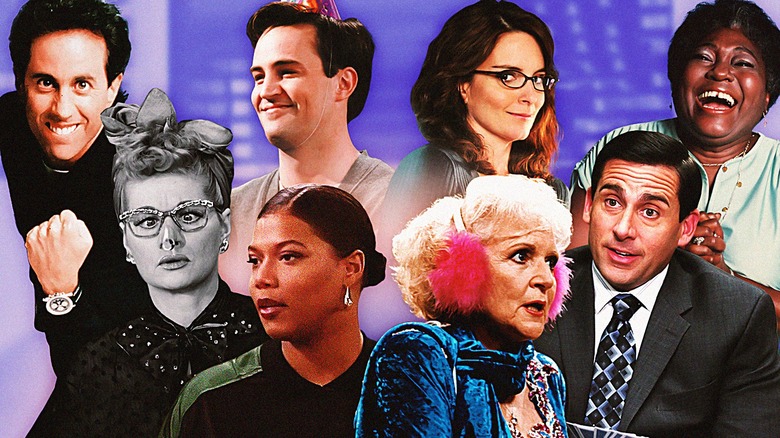
Static Media
To celebrate an artform that continues to be an inexhaustible source of joy after more than 70 years of media omnipresence, we've looked over the history of sitcoms and compiled a ranking of the 30 greatest of all time — with rankings based on a combination of sheer craftsmanship, influence and innovation, cultural iconicity, and, of course, density of laughs.
To make our lives easier, we followed a few ground rules: Straight, unambiguous sitcoms only (so no sketch-only shows and no dramedies, much as we love "Fleabag" and "Atlanta"); English-language only (not because non-English sitcoms can't be incredible, but because there are simply too many of them to cover with any fairness); live-action only. Otherwise, all is fair game here, from the format-defining to the format-breaking to everything in between.
30. The Jeffersons
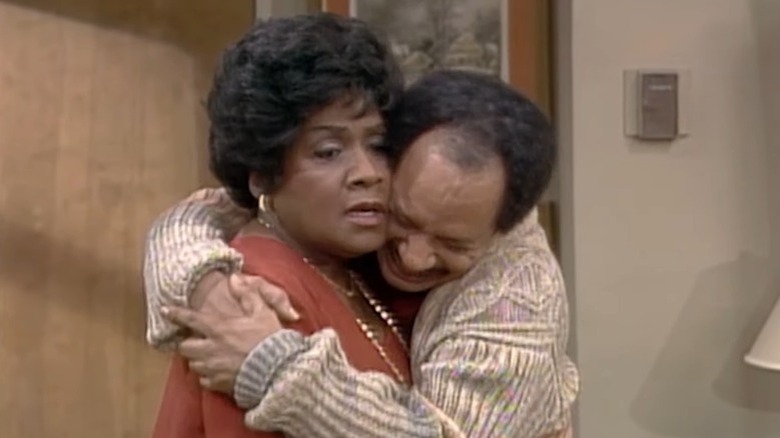
CBS
Originally a spin-off of "All in the Family," "The Jeffersons" was developed by Norman Lear (one of the greatest TV producers of all time) and ran on CBS like its parent show, but didn't take long to become fully its own thing. In addition to being one of the funniest, coziest, most definitional domestic sitcoms of all time, with Isabel Sanford and Sherman Hemsley as maybe the genre's funniest bickering married couple ever, it also had an inestimable positive impact.
It was the first time in American TV history, mind you, that a long-running sitcom was centered around an affluent, successful Black family. That representational breakthrough galvanized the country in the '70s and '80s, offering an alternate portrait of the African American experience that would later lead to innumerous other landmark series.
29. The Golden Girls
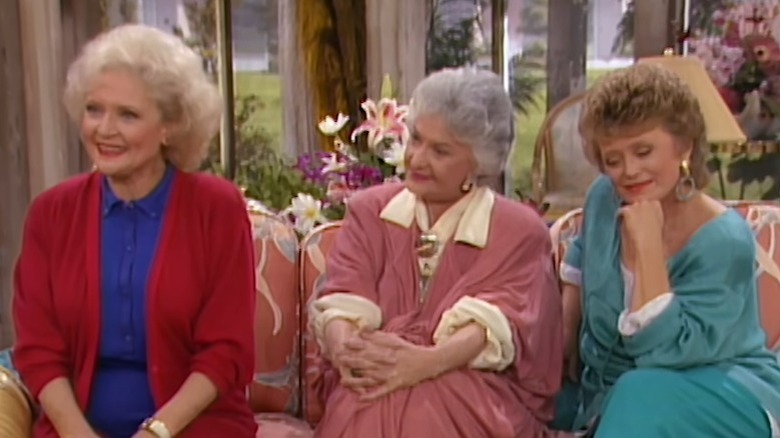
NBC
With its unique spin on the "friends living together" sitcom format, NBC's "The Golden Girls" created one of the most consistently entertaining households in TV history; just watching Dorothy (Bea Arthur), Rose (Betty White), Blanche (Rue McClanahan), and Dorothy's mother Sophia (Estelle Getty) sit together and trade barbs was an immense joy week to week.
Adding to that immeasurable hangout delight was the fact that "The Golden Girls" was one of the most sharply-written multi-camera sitcoms ever, with a mastery of setup-punchline joke structure that has seldom been touched. With expertly-calibrated dryness and snarkiness couched in genuine, warm curiosity about the lives, thoughts, and quandaries of the underrepresented demographic of women over 60, it's no wonder that the show became a massive hit that still attracts new fans to this day.
28. It's Garry Shandling's Show
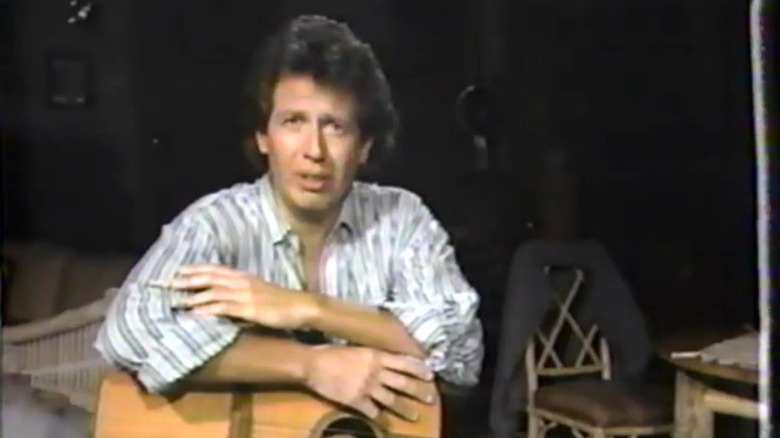
Showtime
Maybe the most underrated series on this list, Showtime's "It's Garry Shandling's Show" is the precursor to every cerebral, postmodernist, surreal, self-deconstructing 21st century sitcom. Although it began running in 1986, at a time when most American television comedy had settled into a conformist, ratings-friendly sameness, it features a premise so out-there that it prompts some shock even today.
Garry Shandling, co-creator and star, plays Garry Shandling, a man aware that he's the main character in a sitcom, who constantly addresses the audience as though his life were a continuous stand-up set, skewering and critiquing and openly interfering with the stock sitcom plotlines that guide his life. Unbelievably conceptual and self-aware, the show was also gut-bustingly hilarious, with a messy, ramshackle attitude about itself that anticipated everything from Adult Swim to the mockumentary sitcoms of contemporary times.
27. Blackadder
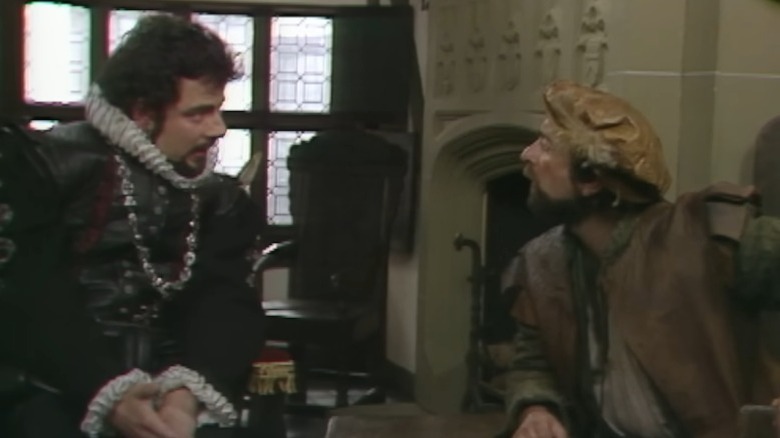
BBC1
"Blackadder" is such an eminent British cultural institution that you could almost let yourself forget it's also, before anything else, an exceptionally strong and hilarious sitcom. The BBC1 series was a historical satire structured around a very bold concept: Each of the four seasons was set in a different historical period, but with the main actors — a veritable all-star team of British comedy luminaries — playing the very same characters in each season.
Whether skewering 15th-century England, Queen Elizabeth I's reign, the Regency, or the Western Front of World War I, "Blackadder" married historical wit to a mastery of farce and goofy humor, resulting in the sort of high-low masterpiece that makes British TV comedy so untouchable at its best.
26. Everybody Hates Chris
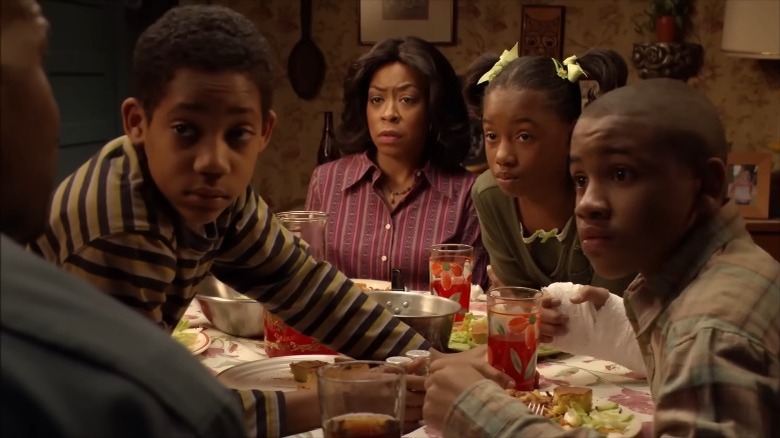
UPN
Created by Chris Rock and Ali LeRoi, with a first season airing on UPN while the latter three moved over to The CW, "Everybody Hates Chris" used its autobiographical hook to spin hilarious, unique, incisive stories about growing up as a working-class Black teenager in 1980s New York City.
Carried by Rock's lively as-himself narration, and featuring Tyler James Williams in one of the most accomplished child actor starring performances ever seen on the small screen, the show loosely dramatized some of Rock's most memorable teenage adventures with a relentless, staunchly perceptive eye for the absurdities of '80s-era American society — all rendered in a free-flowing, cartoony single-camera format that feels innovative even today. At the same time, with help from the brilliant Terry Crews and Tichina Arnold-fronted ensemble, "Everybody Hates Chris" painted a tart yet deeply loving family portrait.
25. Curb Your Enthusiasm
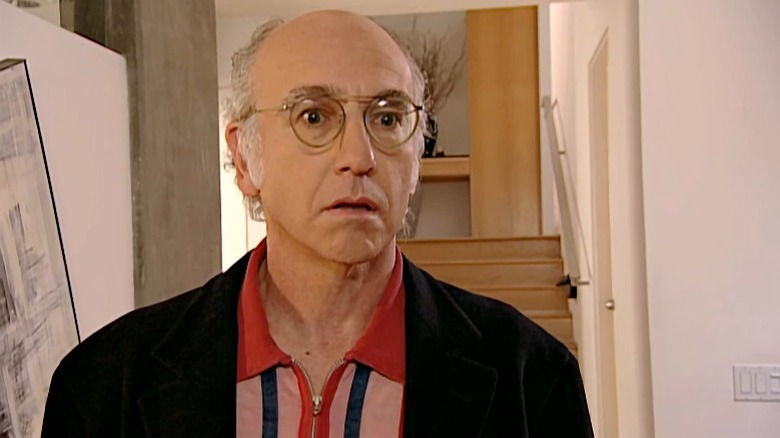
HBO
Following up "Seinfeld" was arguably the hardest task ever faced by a TV writer, and it says something about the brilliance of HBO's "Curb Your Enthusiasm" that Larry David chose to approach that challenge by actively downplaying it.
Deceptively simple and unambitious in format and premise, with episodes following a fictionalized version of David wherever his imagination might take him from week to week, "Curb Your Enthusiasm" became notable for its loose, unscripted format, with situations and storylines laid out beforehand and character interactions mostly improvised by the actors. It was the perfect setup for a show that endeavored nothing more than to be deliriously hilarious and squirm-inducing week after week — a playground for the loopiest, silliest, most neurotic ideas of David, as well as the various big-name performers he invited into the show's pitch-black showbiz satire.
24. The Good Place
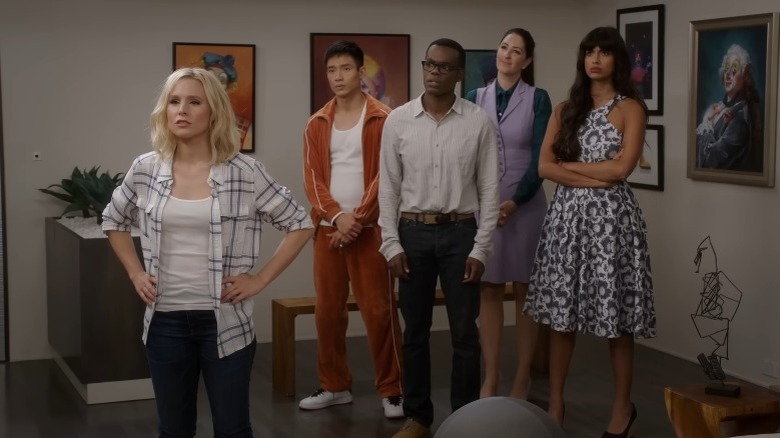
NBC
Standard, gag-driven sitcoms are not necessarily a place where narrative and philosophical grandiosity are expected, but the moment that "The Good Place" laid out its jaw-dropping big twist at the end of Season 1, it was clear that the show's ambitions were much, much loftier than what we usually associate with the genre.
From there on out, the afterlife-set NBC comedy kept upping the ante, rewriting the rulebook for half-hour sitcoms by venturing into epic serialized fantasy storytelling, with fearless inquiries into all the headiest existential themes: Morality, death, identity, the passage of time, the mystery of human connection, the requirements of building a better world, the ever-pressing question of whether people can change. And it did it all while offering a steady influx of TV's silliest gags and goofiest jokes, with help from a core six-person ensemble so flawless that to even name one specific MVP would be its own philosophical conundrum.
23. WKRP in Cincinnati
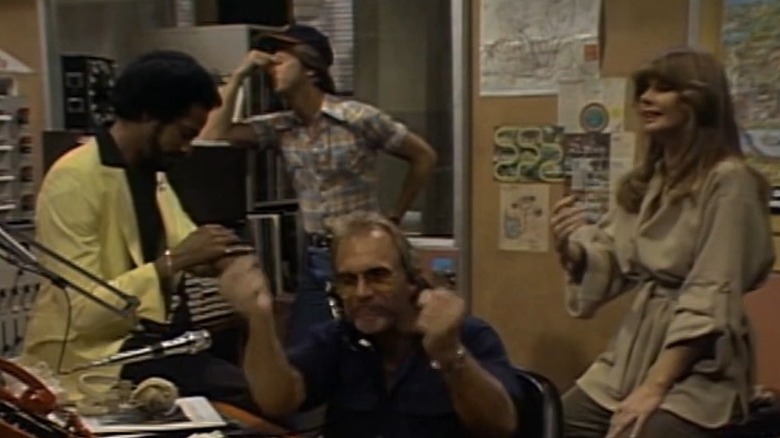
CBS
A zany satire with more of an adult edge than most network TV, "WKRP in Cincinnati" was the first American show to portray the day-to-day life of radio disc jockeys accurately, thanks to creator Hugh Wilson's firsthand experience in the industry. In doing so, with its unusual focus on lived-in, procedural workplace realism, this landmark CBS work-com laid the groundwork for many of our time's most popular shows in that subgenre.
At the same time, "WKRP" mastered the art of the ensemble sitcom, generously distributing material to each member of its perfectly-balanced eight-person ensemble and making sure that the station's dynamic always stayed fresh and engaging. It was a show to fall completely in love with, which those who saw it did; even as it struggled in the ratings and ultimately got canned after just four seasons, "WKRP" found a second life in syndication and ultimately became a TV cult classic.
22. Good Times
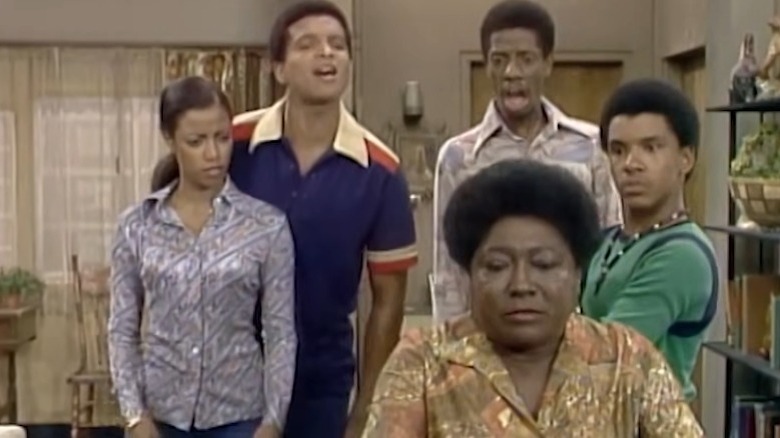
CBS
One of the quintessential Chicago shows, CBS's "Good Times" depicted life in the city's projects with sobering clarity yet no shortage of positivity and good-natured humor. If so many sitcoms and TV series in general continue to be pitched to a presumed middle-class suburban viewer for whom life in the margins is an abstract concept, "Good Times" was a show about poverty that presented and grappled with poverty matter-of-factly, understanding that working-class people watch TV too.
It was one of the most miraculous and best-executed balancing acts in television history: A show about hardship, laced with biting wit and trademark Norman Lear social topicality (it was a spin-off of "Maude," itself a spin-off of "All in the Family"), but one that mustered up so much warmth as to feel like a comfy place to land at the end of a rough day — with the Evans as the kind of sitcom clan that gets to feel like a second family.
21. Peep Show
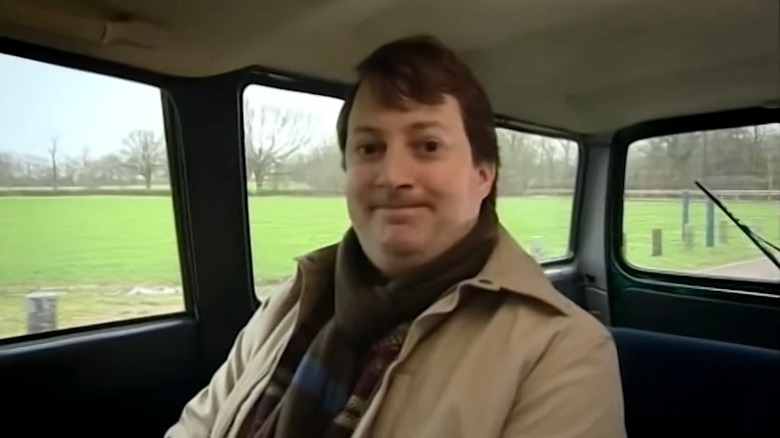
Channel 4
The defining British sitcom of the 21st century, Channel 4's "Peep Show" made waves with its innovative POV shooting style, in which virtually every shot was first-person, with those from the perspective of protagonists Mark (David Mitchell) and Jeremy (Robert Webb) also featuring narration of their thoughts.
The brainy brainchild of Andrew O'Connor, Jesse Armstrong (who would later create HBO's "Succession"), and Sam Bain, "Peep Show" married that dizzying formal innovation to plenty of comedic and narrative boldness, using the anxiety-ridden lives of two underachieving roommates as a testing ground of humanity's capacity for selfishness and delusion — and mining devilishly dark humor from the enormous distances between people's true and performed selves.
20. The Jack Benny Program
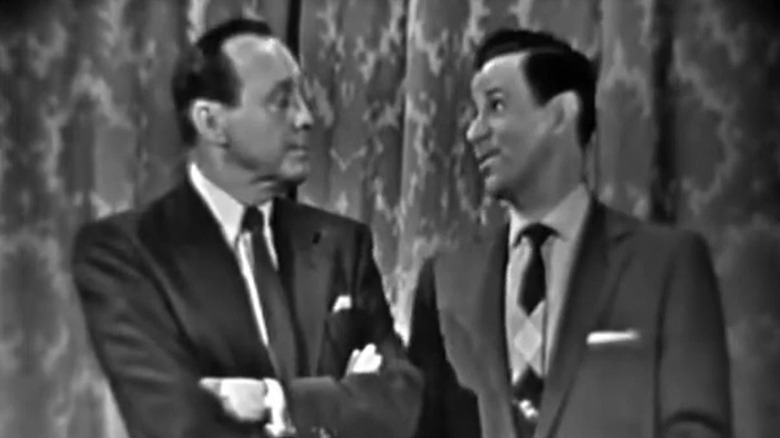
CBS
A continuation of the eponymous, legendary radio series that began running in 1932, "The Jack Benny Program" was the grandfather of all sitcoms — and it laid the foundations for the genre without quite inhabiting it officially. Outwardly, "The Jack Benny Program" was a sketch show, in which the titular comedian and his fellow stars would put together lively Hollywood parodies and musical numbers.
In between sketches, however, "The Jack Benny Program" also told the fictionalized story of its own production, with the actors playing themselves as larger-than-life showbiz types with constantly clashing egos. This format allowed the show to not only essentially inaugurate sitcoms as a TV genre, but do it in a more modern, snarky, liberated way than "official" sitcoms would really get to until many years later. Talk about a trailblazer.
19. Parks and Recreation
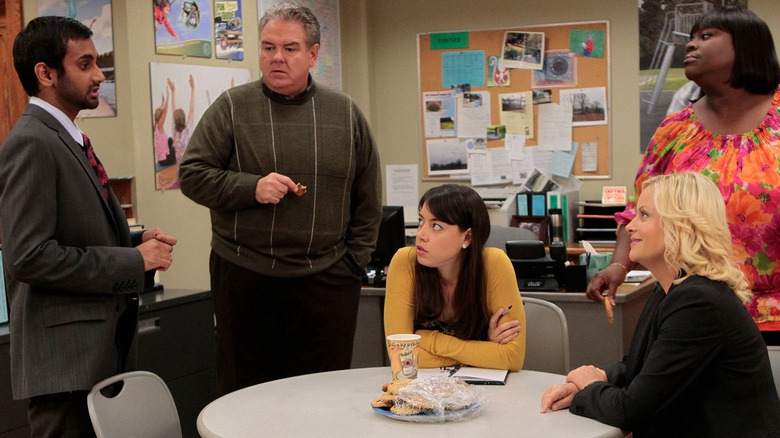
NBC
Few TV inner-worlds have ever been as fully, carefully, fascinatingly developed as the fictional small town of Pawnee, Indiana on NBC's "Parks and Recreation." The care the writers took in building out the lore of Pawnee was similarly reflected in the way they handled the show's characters: Not many sitcoms have treated their players with more love, so cherishing their development and capacity for variation.
None of that would add up to much, of course, if "Parks and Recreation" weren't funny — and, to be sure, the show stayed hilarious and true to its strengths for the entirety of its seven-season run. Bone-dry, rambunctiously silly, and quietly brilliant about the maddening realities of small-town government, it was irresistible television on every level.
18. The Dick Van Dyke Show
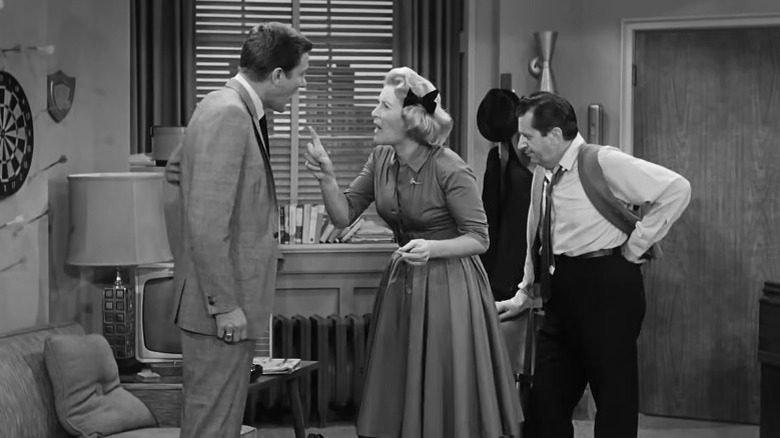
CBS
If the '50s were the time of genre-defining domestic CBS sitcoms like "I Love Lucy" and "The Honeymooners," "The Dick Van Dyke Show" was the CBS series that ushered in the '60s, which is to say, arguably the first modern sitcom, and the first to start charting new territory.
Both a domestic sitcom about a suburban New York family and, revolutionarily, a workplace sitcom about the production of a fictional variety TV show, this Carl Reiner-created series moved away from the consolidated, gag- and pratfall-based formats of '50s sitcoms (though it still managed to get in the most iconic televised tumble in history). In its place, "The Dick Van Dyke Show" brought back the tradition of screwball comedy, wringing enormously smart and snappy humor out of fast-paced dialogue and, occasionally, TV-transformative risk-taking.
17. Veep
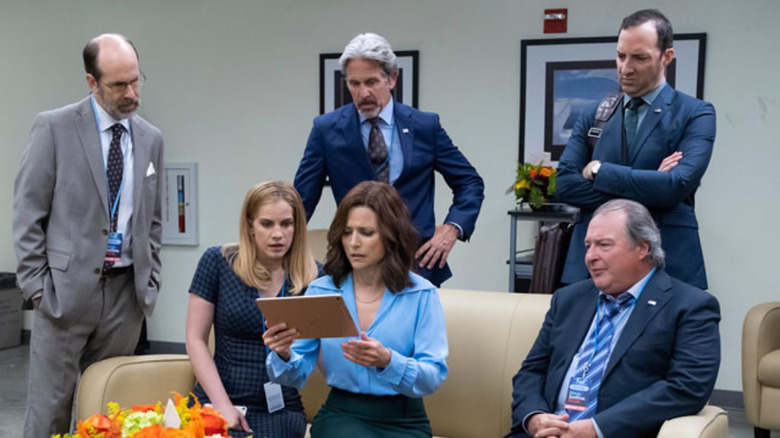
HBO
A lot of dramatic shows about the White House have prided themselves in their accuracy, their sobriety, their level of research, and even their cynicism. But no TV series has quite gotten right how pathetic American politics are to the same extent as HBO's "Veep."
Following the bumbling staff of a disgruntled U.S. vice-president (Julia Louis-Dreyfus), "Veep" was brutally cynical in its top-to-bottom evisceration of everything from D.C. ceremonials to electoral dynamics to international diplomacy to congressional power plays. Every character was a petulant child, an incompetent child, or both. Every world-changing decision was made in the pettiest terms with the puniest intentions. Every rant was peppered with levels of vulgarity and profanity that would kill a network Standards and Practices officer on the spot. It was all as jaw-dropping as it was smart, well-written, and hysterically funny. To top it all off, Louis-Dreyfus gave the single greatest performance in TV comedy history.
16. Taxi
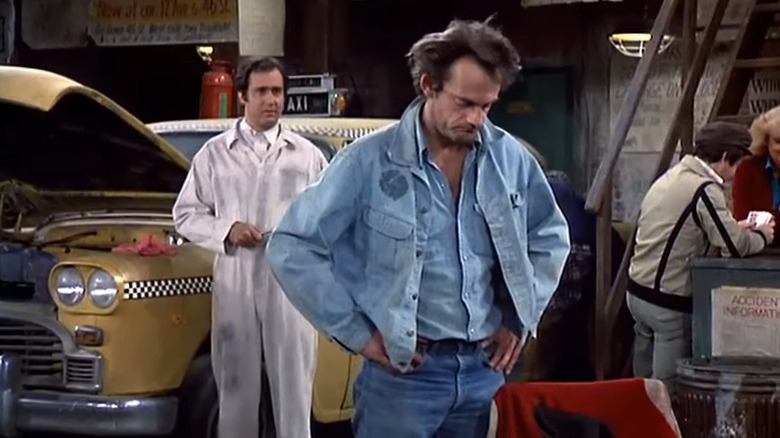
ABC
With four seasons aired on ABC and one on NBC between 1978 and 1983, "Taxi" was the show that refined the work sitcom into the best possible version of itself. For starters, every cast member was a master of their craft, from Judd Hirsch as the taciturn voice of reason to Danny DeVito as the boisterous boss to Andy Kaufman as the intractable eccentric to Christopher Lloyd as the spaced-out former hippie. On top of that, the show invented several sitcom conventions, and those it didn't invent, it perfected.
More than anything, though, "Taxi" was notable as a show about the farcical nature of work itself, the imbalances of class relations and the chimeric absurdity of the American Dream. Made in a transformative period for the American economy, it understood what truly clear-eyed workplace comedy could be in a way that virtually no other U.S. show has, before or since — such that the requisite Power Of Friendship moments came not in a vacuum but as a pointed rebuttal to a world in which worker solidarity was being increasingly discouraged.
15. Fawlty Towers
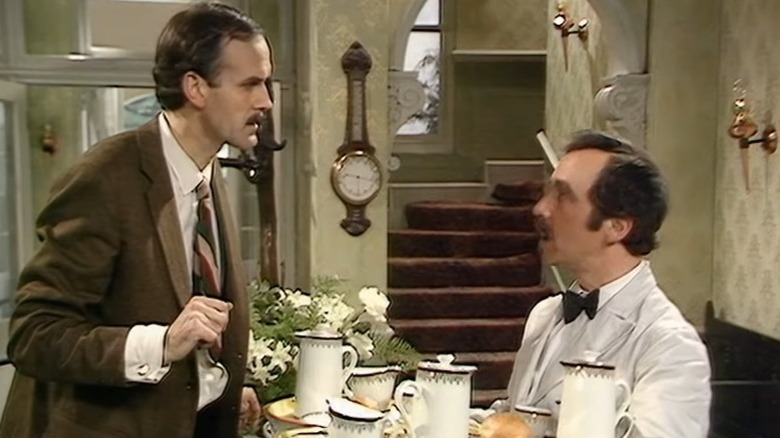
BBC Two
It's kind of stunning to contemplate the fact that one of the most brilliant and influential sitcoms of all time only had 12 total episodes, but there you have it: "Fawlty Towers" only aired two seasons on BBC Two, one in 1975 one in 1979, before passing on to the firmament of TV royalty.
That alone says a lot about how perfect those 12 episodes were, especially how completely John Cleese and Connie Booth perfected the art of building out farcical plots and peppering them with perfectly-constructed gags. A ruthless satire of '70s British society and the classism, amorality, and general dysfunction plaguing it, as manifested through the ins and outs of the world's worst hotel, "Fawlty Towers" was arguably the inaugural instance of great TV about horrible people — a concept it mastered right out of the gate.
14. It's Always Sunny in Philadelphia
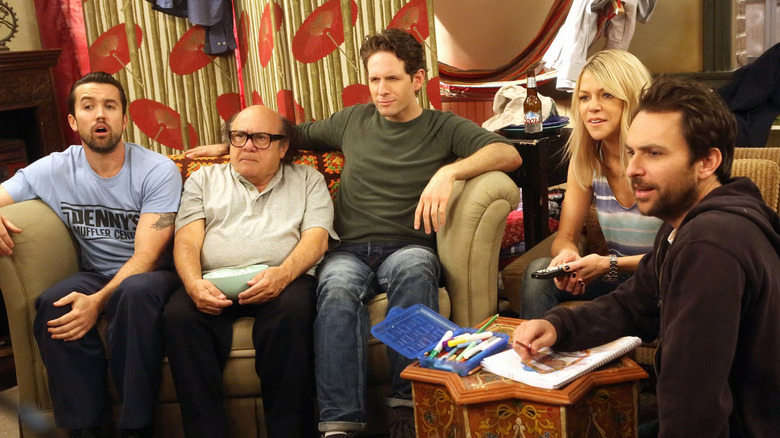
FX
Showtime's "It's Always Sunny in Philadelphia" could almost be described as more of an experiment than a sitcom: What happens if you unleash five of the worst people on Earth on television for 16 years, let them be fully and irrepressibly themselves without ever learning a single thing, and mine every drop of dark humor that comes from it?
The answer, of course, is "one of the most riotously funny things you'll ever watch." Almost spiritual in its pure and unfettered human horror, yet far from just a show about terrible people, "Always Sunny" has gone places across its 16 seasons that most shows wouldn't even dare dream of, with the Gang's deranged sociopathy proving as inexhaustible a comedic (and occasionally dramatic) engine as they come. The history of TV wouldn't be the same without it.
13. All in the Family
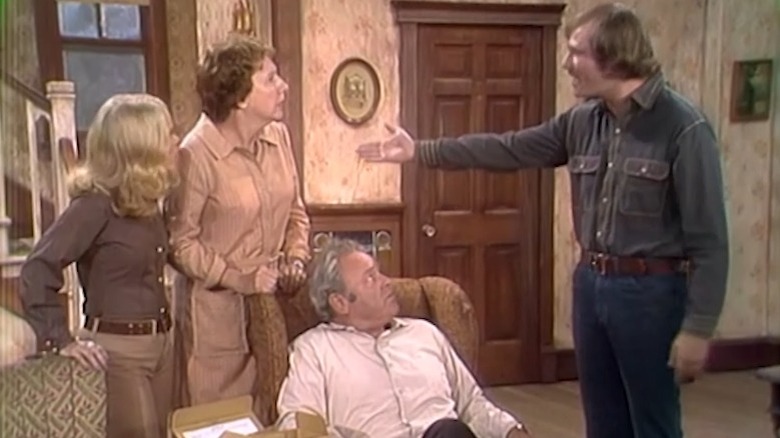
CBS
In American entertainment, family sitcoms have historically been synonymous with light, escapist, rose-colored fun. So there's something amusing about the fact that the definitive family sitcom, the subgenre's most popular and most influential example ever, was a show defined by its tonal, political, and narrative boldness.
Not that Norman Lear's "All in the Family" lacked for escapist fun, mind you — it was still a certifiable warm blanket of a show, most of the time. But, through its decision to actively incorporate dramatic storytelling, political debate, hot-button social controversies, and realistic working-class hardship, this CBS classic showed that the family sitcom could turn a mirror to society — and that, as evidenced by its years of unchallenged ratings dominance, society just might end up enthralled rather than scared.
12. Friends
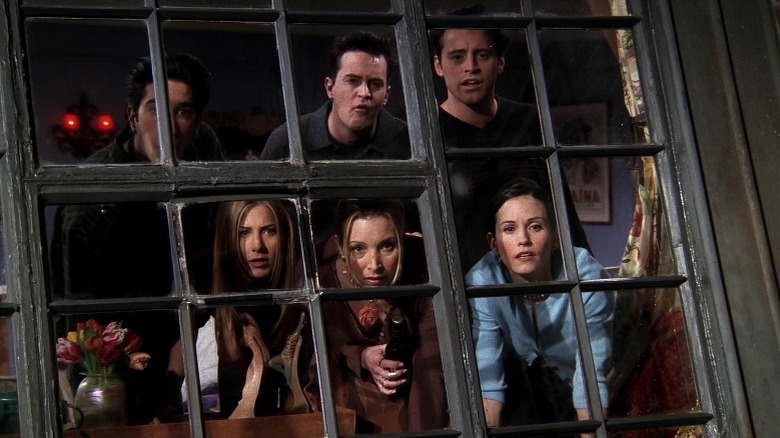
NBC
Although NBC's "Friends" has become so overexposed, overanalyzed, and overdiscussed that it now counts about as many haters and skeptics as it does diehard fans, when you strip away all the hype and all the mythologizing, it's still just an exceptionally good sitcom.
It was by no means perfect, if that's even achievable for a Nielsen-leading show with 10 seasons and 236 episodes/ "Friends" has its share of rough patches, maddening plotlines, terrible episodes, and poorly-aged jokes. But loving the show means taking the good with the bad, embracing the whole as an epic of aspirational camaraderie: A realm where every heartache, every failure, every modern flaw could be sublimated into the warm, restorative glow of a bunch of fellow screw-ups who had each other's backs no matter what.
11. The Office
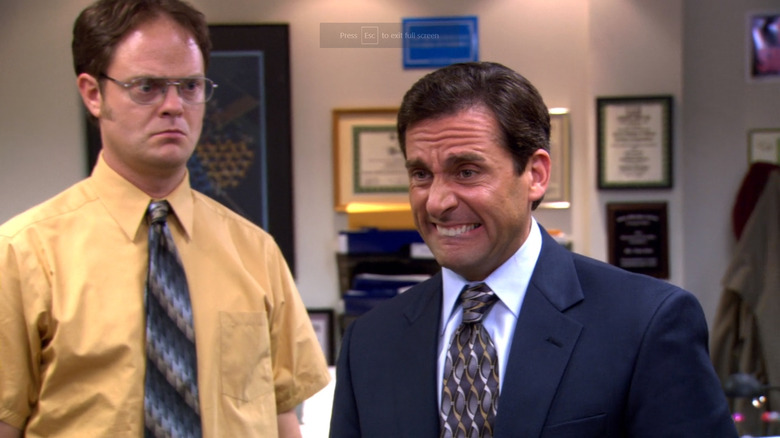
NBC
NBC's "The Office" is still the greatest example of a show that married the curt, awkward style of 21st-century comedy to punchy, jokey, mass-appeal sitcom orthodoxy.
While it's widely remembered for its multitude of perfectly-timed dry gags, the true greatness of the Greg Daniels-developed series lay in weaving complex, profound studies of its vast ensemble of characters. The Scranton employees were all so captivating, so alive, that, by the last few seasons, you could tell everything any one of them was thinking just from a quick glance to the camera.
Formally, too, "The Office" proved enormously influential, codifying the mockumentary format into a commercially viable template — one which continues to be the go-to for network sitcoms interested in angling for that same degree of character vividness.
10. Living Single
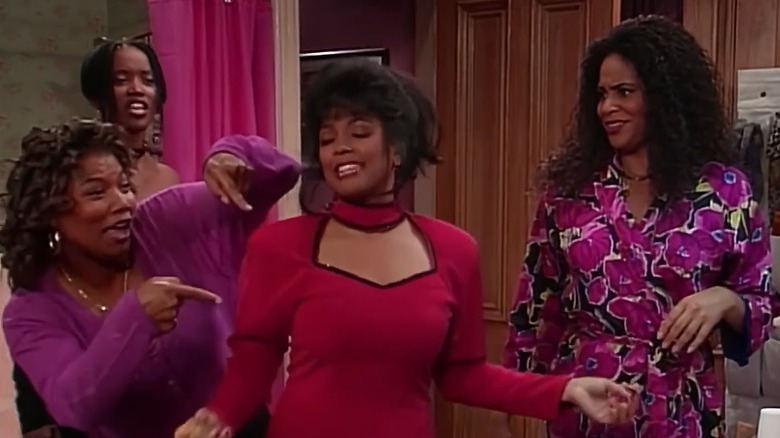
Fox
If we now know, in 2024, that a great comedy series doesn't need to be much more than an excuse to spend time with a charismatic group of friends that comes to feel like our own, no show ever embodied that understanding more perfectly than Fox's "Living Single." It was the quintessential hangout sitcom, the quintessential New York City sitcom, and the quintessential young-adult-urban-life sitcom, all rolled into one.
To boot, "Living Single" had arguably the best ensemble cast in the genre's history, with Queen Latifah, Erika Alexander, Kim Coles, and Kim Fields all creating deeply lived-in, thoroughly unique, flawlessly synchronized portrayals of young women coming into themselves as they helped each other through the trials of love, family, and career-building. They had friend chemistry down to an art form long before it was a go-to sitcom tool, and the Yvette Denise Lee-led writers' room understood their characters so alchemically that they almost didn't feel written at all.
9. Community
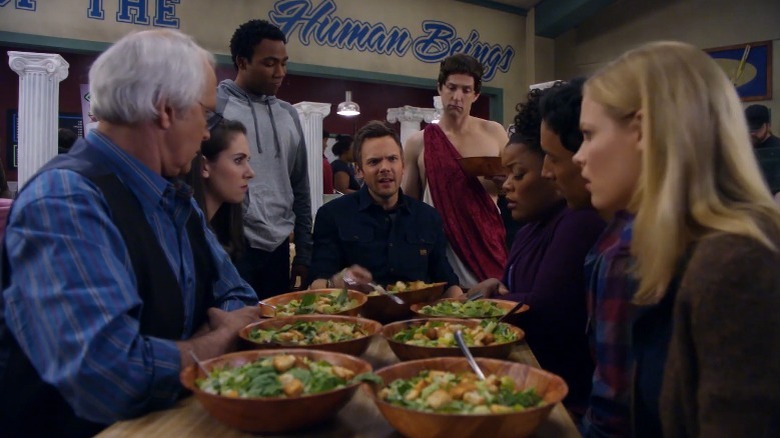
NBC
Few network TV shows, comedic or otherwise, have ever endeavored to be as experimental, inventive, and subversive as "Community." The Dan Harmon-created NBC show began as a zany and absurdist yet more-or-less traditional sitcom about seven community college students who form a Spanish study group. Over time, however, it grew out of the confines of its basic premise and became a sitcom Rubik's cube, where every trope and convention of the genre was repeatedly twisted around on its axis in the brainiest, wildest ways imaginable.
All that deconstructionist flair wouldn't have worked without a foundation of extremely strong character comedy, and, underneath the sound and fury, "Community" was also one of the best found-family shows ever — a years-long study of all the ways in which a group of misfits with little in common could profoundly transform each other's lives. As sitcom milieus go, it doesn't get better than Greendale.
8. The Cosby Show
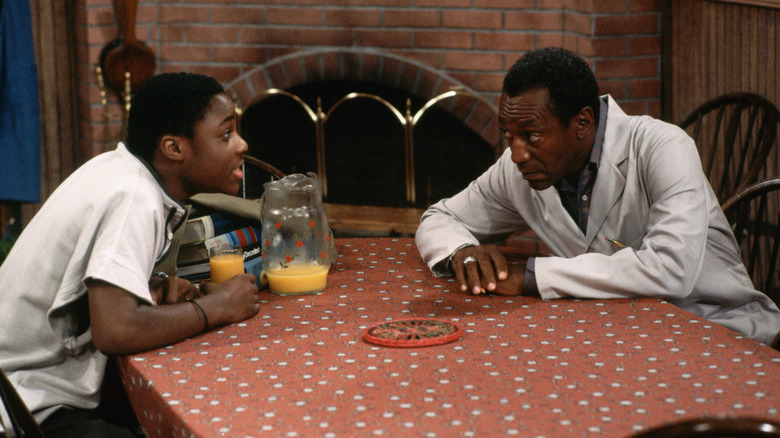
Cheryl Chenet/Getty Images
The legacy of NBC's "The Cosby Show" has inevitably been tarnished by the more than 60 accusations of sexual assault made against Bill Cosby — not only because it now feels wrong to throw the show much support while its co-creator and star is still profiting from it, but because, even seen in a vacuum, "The Cosby Show" is enormously contingent on Cosby's personality and its would-be gentle trustworthiness.
As a result, it's now virtually impossible to see past the self-marketing fraud of it all and appreciate the collective talent and craftsmanship on display in "The Cosby Show," which was arguably the defining archetype of American family sitcoms until just a few years ago. The fact that so many of the actors who passed through it became superstars tells you everything you need to know about the show's mastery of its medium.
7. The Mary Tyler Moore Show
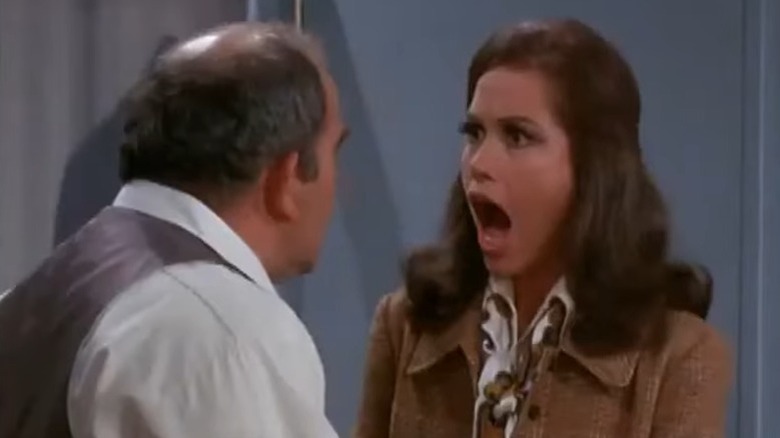
CBS
There was nothing quite like "The Mary Tyler Moore Show" when it premiered in 1970: A slick, cosmopolitan sitcom about an independent working woman and her bustling professional career. Now, 50 years later, there's still not much like it in TV comedy, as far as grappling earnestly with women's place in the business world goes.
Few times in history has any series — let alone such a popular, influential one — dealt with the spirit of the times in such a head-on way as this James L. Brooks and Allan Burns-created CBS sensation, which ran topical issues through a revolving door and owned up to hard realities of being an adult in the big city like there was nothing to it. Moore's sly, tough, brilliant news producer Mary Richards shifted cultural notions of what a successful woman could be, and, with help from an innovatively layered and fleshed-out cast of supporting characters, she did it all while showing the world a good time.
6. Cheers
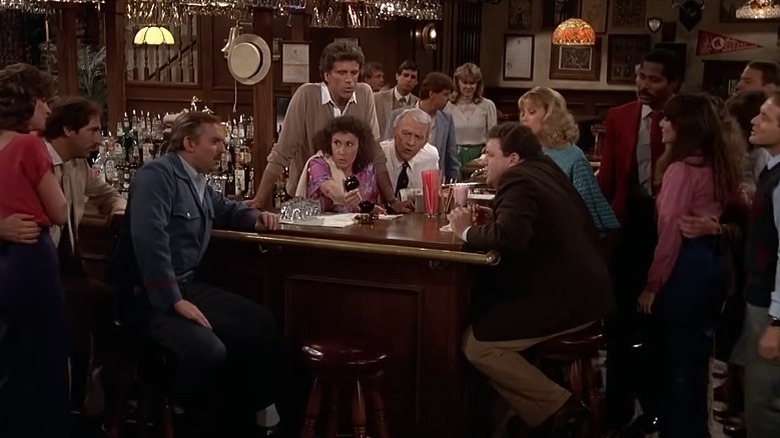
NBC
Sometimes, it doesn't take much more than a single bar in Boston, its regular patrons, and their various conversations and altercations to make 11 years of solid TV gold. NBC's "Cheers" wasn't just a cultural phenomenon with ratings almost too huge to fathom; it was the definitive testament to the sitcom as a humanist gathering of personalities and affections, a banquet to the very act of being alive, in all its beauty and heartache.
The years-long romantic whirlwind between Sam (Ted Danson) and Diane (Shelley Long) was arguably the most iconic in TV history up to that point. The ensemble around them was a murderers' row. And the writing was just something else — character-based comedy that managed to get funnier and richer as the characters grew deeper and the viewers grew attached to them.
5. 30 Rock
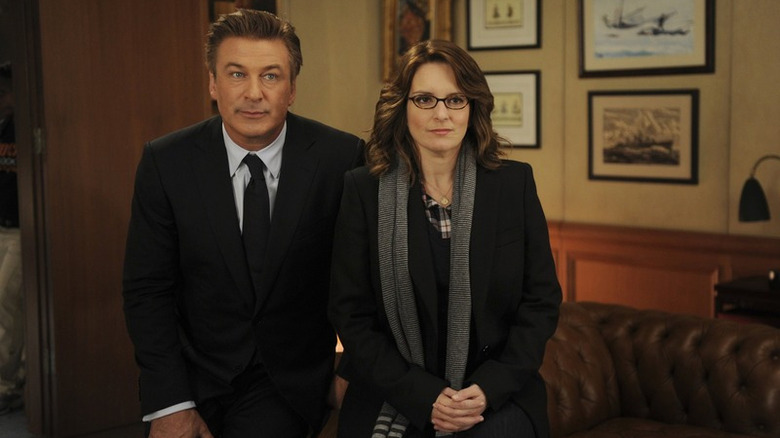
NBC
A lot of sitcoms throughout history have attempted to be "live-action cartoons," with the degree of elastic abandon and gag density that you'd see on an animated show untethered from real-world laws of physics and human behavior, but none have come even close to pulling it off with as much success as "30 Rock."
In addition to being a sturdy, expertly-crafted satire in which New York City's TV industry served as a microcosm of all that was absurd in the United States, the Tina Fey-created comedy was an achievement in grand architecture: Never before or since has any series offered so many jokes per minute with such a high ratio of hilarity. Every scene was an unfathomable bevy of gags, down to every throwaway line and every editing and music choice, without a single wasted beat. It's mind-boggling stuff just on the level of craft, even before you get to how hysterical it is to experience.
4. The Larry Sanders Show
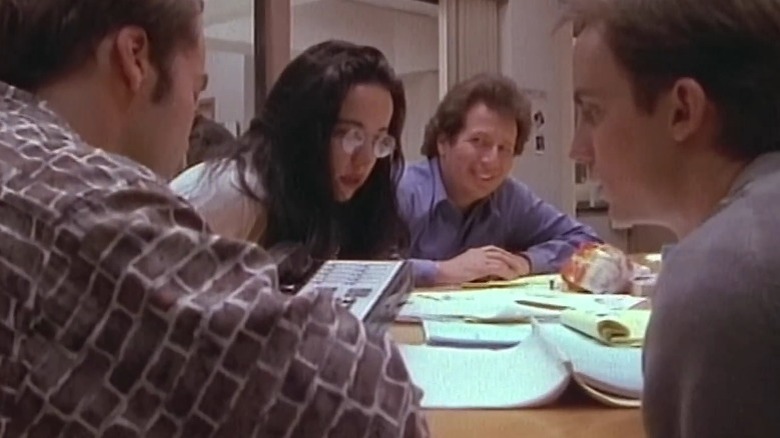
HBO
Ground zero for the dry, fast-paced, documentary-style modern workplace sitcom was "The Larry Sanders Show," a series that, in its own way, proved as much of a game-changer for TV comedy as fellow '90s HBO productions like "Oz" and "The Sopranos" did for drama.
The brainchild of Garry Shandling and Dennis Klein, with a scathing showbiz outlook largely informed by Shandling's own experiences in the industry, "The Larry Sanders Show" inaugurated the school of sitcoms that break free from the genre's lowest-common-denominator confines by offering a non-stop barrage of wit, intelligence, and satirical precision, while layering jokes on top of jokes with gleeful hyperactivity. Unflaggingly authentic, brilliantly-acted, and directed with cinematic flair, it was the show that put HBO on the scripted TV map and brought television roaring into the 21st century — eight years before the fact.
3. I Love Lucy
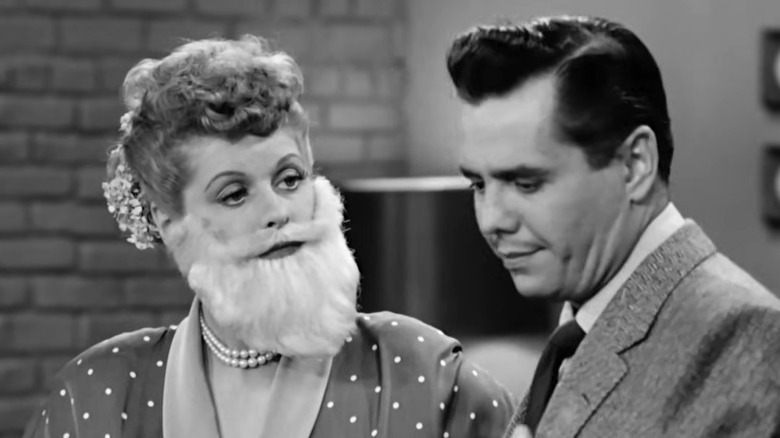
CBS
While most originators from the early years of TV have since passed into historical-interest curios, CBS's "I Love Lucy" remains an irresistible beam of light to this day, with a majority of its 180 episodes still ringing with as much joy and goofy fun as ever (give or take the occasional "Oof, they had weird values in the '50s" clunker).
The show's writers and actors managed to not only invent and refine the ensemble sitcom format in real time, but to do it while honing a certain alchemy of crowd-pleasing entertainment so powerful that it has yet to be topped — you'll notice that the top two shows on this list are both dark, cynical affairs, because, as sunny comedy goes, "I Love Lucy" is simply the gold standard. For millions of fans around the world in the 20th century, Lucille Ball was some kind of ethereal trickster deity, whisking viewers away into a realm of effortless belly laughs week after week. Many sitcoms endeavor to create a cozy, friendly little world where everything is fine for 30 minutes, but none have done it better than the archetypal original.
2. Arrested Development
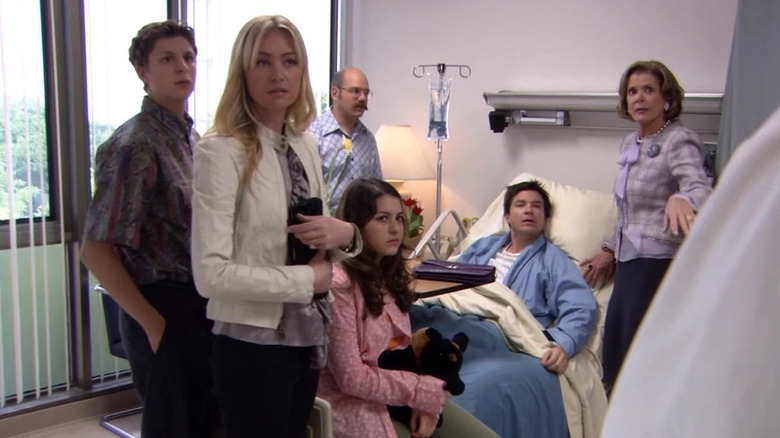
Fox
Structured, sequenced, and shot like a maddeningly complex crime drama, full of massive serialized arcs and callbacks and webs of intrigue that required flowcharts to follow, "Arrested Development" broke so many barriers and invented so many new paradigms for sitcoms in its original 2003-2006 Fox run that it was almost hard to keep pace.
The narrative complexity was matched by the humor: Jokes would be quietly set up in one episode and pay off whole seasons later. Background gags would require multiple viewings or a pause button to be fully appreciated. Runners would build in sophistication and take on new layers with each iteration. A comprehensive understanding of American politics and culture would be required for much of the vicious satire to land. At the same time, the moment-to-moment was always hilarious, artfully flowing from the driest rejoinders to the most over-the-top pratfalls with splendid help from a cast where every single member was or became comedy royalty. It was galaxy-brain television comedy.
1. Seinfeld
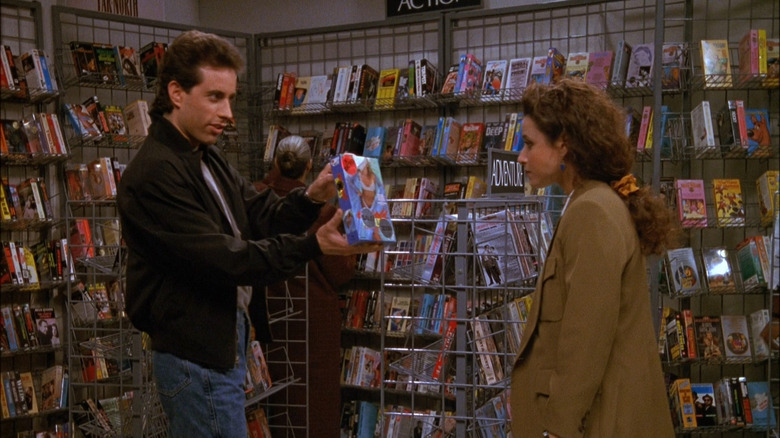
NBC
Finally, it couldn't be anything but this. No other work has ever perfected the sitcom form so thoroughly, reaching such an enlightened understanding of the essential tenets of mining comedy out of situations. An episode of "Seinfeld" could be a plot-heavy farce full of ironic twists of fate and quasi-tragic arcs, or it could be almost literally about nothing, and it would inevitably be hilarious either way.
The way that the writers (led by Larry David before he left) would build on incredibly particular observational moments, deriving new, increasingly maddening moments from them in a cascade of mundane surreality, approached Renaissance-era artistic refinement. The way that Julia Louis-Dreyfus, Jason Alexander, Michael Richards, and sometimes even Jerry Seinfeld himself would inhabit those moments was epic, with each cast member conjuring up iconic line deliveries and physical comedy feats by the minute. There was no morality, no pathos, no lessons, no complex character arcs: "Seinfeld" was about making people laugh, full stop, through and through. And that it did.

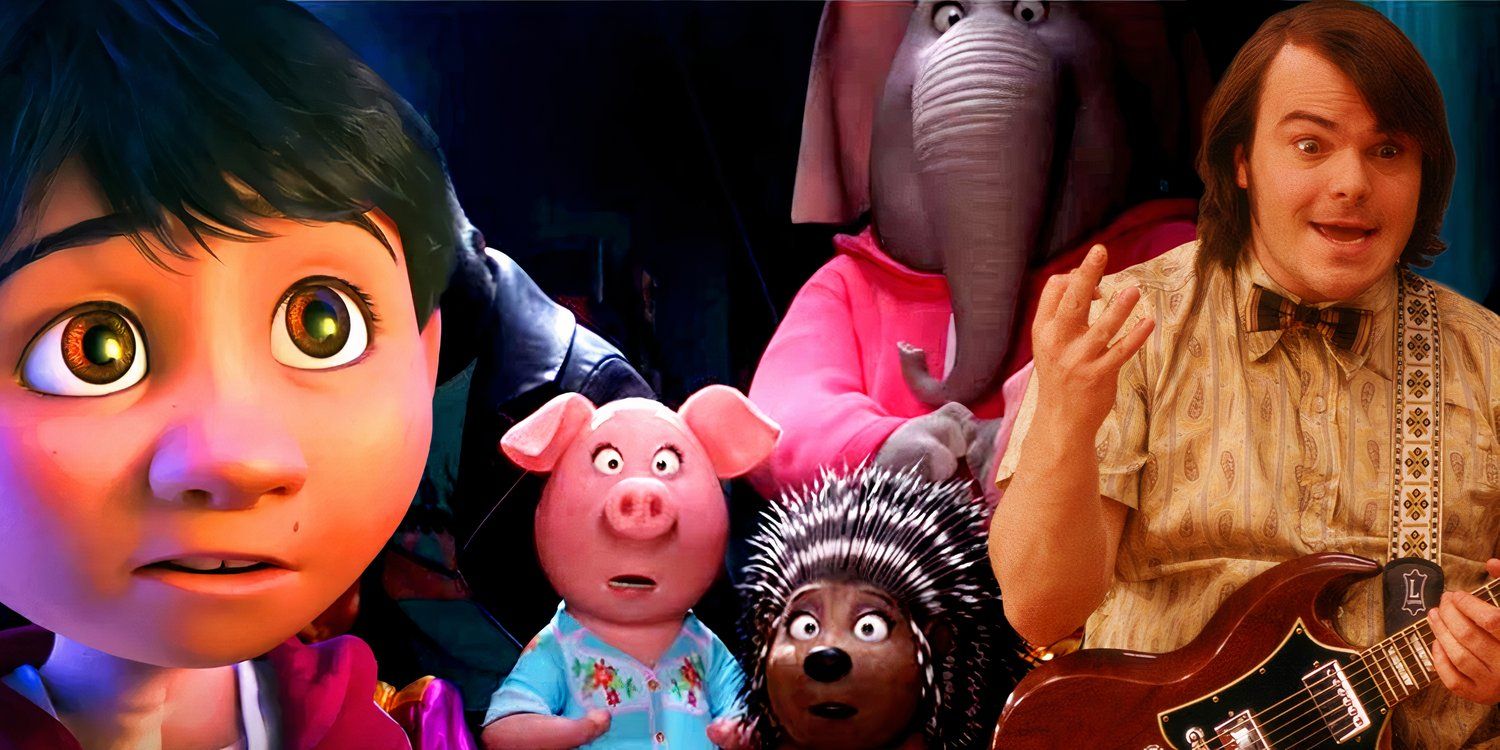
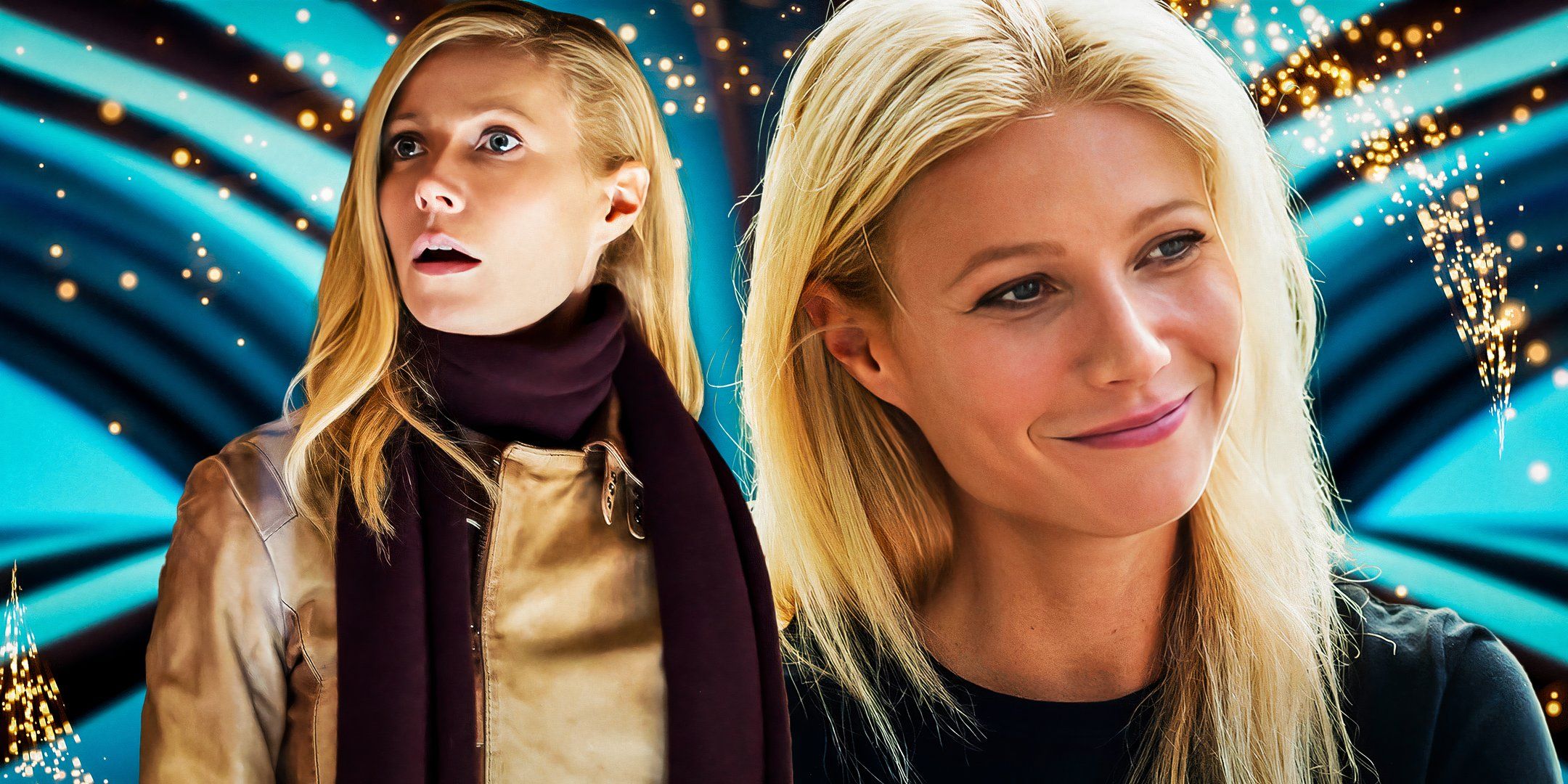






 English (US) ·
English (US) ·